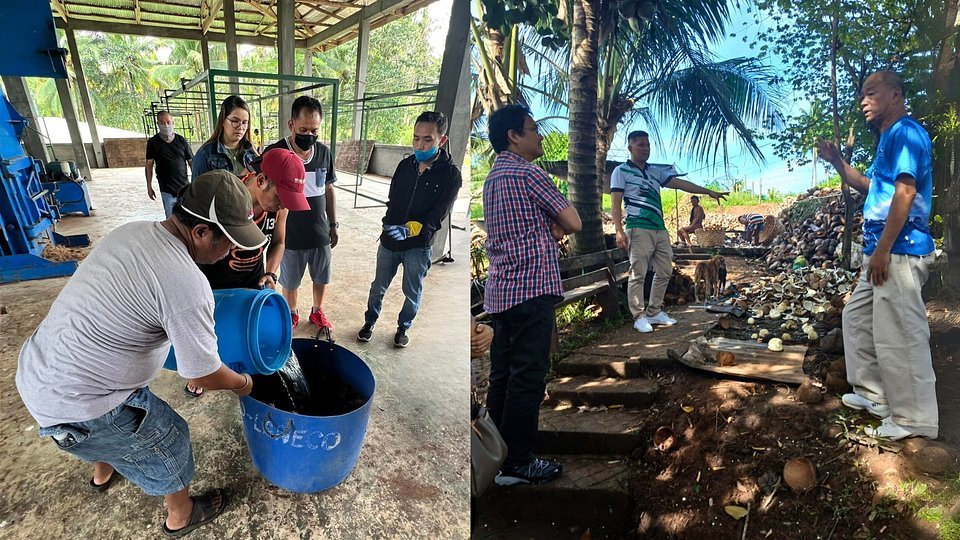![plastic waste representation image [Photo by Antoine GIRET on Unsplash ]](https://ecofriendlytip.com/wp-content/uploads/2025/06/antoine-giret-7_TSzqJms4w-unsplash-1024x680.jpg)
Photo by Antoine GIRET on Unsplash
As 95 countries pledged unified action to combat plastic pollution at the United Nations Ocean Conference in Nice, France, Greenpeace emphasized the urgency of turning words into results—especially for nations like the Philippines.
The “Nice wake up call for an ambitious plastics treaty” declaration highlights global support for a legally binding agreement that caps plastic production and phases out toxic plastics and chemicals. The Philippines, a key signatory, is among the nations most vulnerable to plastic waste and climate-related disasters.
Plastic reduction must go beyond declarations
Greenpeace Philippines Zero Waste Campaigner Marian Ledesma, who also serves as a delegate to the Global Plastics Treaty talks, welcomed the Philippines’ endorsement but warned against complacency.
“The Nice Declaration sends a powerful message: to protect people and the planet, we must tackle the root of the problem—plastic overproduction driven by fossil fuels and single-use plastic addiction by corporations,” Ledesma said. “For countries like the Philippines, where the impacts of plastic pollution and climate change are deeply felt, this is a matter of justice.”
She urged the Philippine government to enact policies that curb plastic production, eliminate single-use plastics, and promote reuse and refill systems. Ledesma emphasized that national leadership must reflect international commitments.
All eyes on Geneva negotiations in August
With the next treaty negotiations set for August in Geneva, Greenpeace insists that the Philippines must help drive a strong and enforceable agreement. “We need a treaty that has teeth—one that cuts plastic production, holds polluters accountable, and protects frontline communities,” Ledesma said.
Greenpeace reiterated its call for governments to resist pressure from fossil fuel and petrochemical lobbies and to push for a robust treaty that prioritizes environmental and human health over corporate interests.
![Environmental groups warn that delays worsen the impacts of plastic pollution worldwide. [photo credit: Trixie Guerrero | Break Free From Plastics]](https://ecofriendlytip.com/wp-content/uploads/2025/08/GP0SU6DVW_PressMedia-2500px.jpg)
![Plastic waste remains a global issue despite years of recycling efforts [photo credit: Noel Celis | Greenpeace ]](https://ecofriendlytip.com/wp-content/uploads/2025/08/GP0SU6A0W.jpg)
![Greenpeace Philippines urges plastic reduction on World Environment Day 2025. [photo credit: Greenpeace Philippines website]](https://ecofriendlytip.com/wp-content/uploads/2025/06/29a8cc2e-gp0stvtcm-768x511-1.jpg)
![PET bottle waste used in road building draws criticism from environmental watchdogs in the Philippines. [Photo by Magda Ehlers from Pexels: https://www.pexels.com/photo/photo-of-plastic-bottles-2602537/]](https://ecofriendlytip.com/wp-content/uploads/2025/05/pexels-magda-ehlers-pexels-2602537-scaled.jpg)
![Plastic waste representation image [Photo by MART PRODUCTION: https://www.pexels.com/photo/clear-plastic-bottle-with-blue-lid-7767813/]](https://ecofriendlytip.com/wp-content/uploads/2024/12/pexels-mart-production-7767813-scaled.jpg)
![The Philippine Reuse Consortium 2 [Photo credit: Albert Lozada (Greenpeace PH)]](https://ecofriendlytip.com/wp-content/uploads/2025/01/The-Philippine-Reuse-Consortium-2-_-Photo-by-Albert-Lozada-Greenpeace-PH.jpg)




Leave a Reply